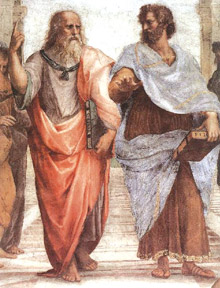Adding solidity to pure wind

Aristotle characterized human beings as zoon politikon. This
expression receives two translations: one is that humans are social
animals. But the second is that humans are political animals. Everything
from ants to timber wolves is social animals. But only human beings are
political animals. My own experience sitting on my father’s shoulders to
listen fast yet interesting speeches of politicians in my tender ages
proves this statement.
Language is a powerful tool in politics and politicians are its most
superfluous users, both for good and bad purposes. As George Orwell once
wrote in his masterpiece Why I Write, “Political language is designed to
make lies sound truthful and murder respectable, and to give an
appearance of solidity to pure wind.”
It is widely conceived that language and politics are interconnected.
Language is for instance, considered the vehicular expression of
politics. Language is the most important point of entry into habits of
thought of a people. It embodies within itself cumulative association
derived from the total experience of its people. In politics words have
a powerful effect. Politicians mostly ‘govern’ men with words. Language
is the means by which political ideas are transmitted to the community.
The strength of language in politicking is enormous.
 Once,
during a conference presentation on language and politics, an American
professor talked about an interesting equivalence. He said that four
hostile newspapers may equal of 100,000 enemy troops on the field of
battle underlining the extent to which political language is itself a
weapon. He claimed further that every political authority will lead to
justify itself by an appeal to language in its symbolic or realistic
sense. It is apparent from the various opinions stated above that
language is the key factor in political behaviour concerning mobilizing
people to support and acceptance. Once,
during a conference presentation on language and politics, an American
professor talked about an interesting equivalence. He said that four
hostile newspapers may equal of 100,000 enemy troops on the field of
battle underlining the extent to which political language is itself a
weapon. He claimed further that every political authority will lead to
justify itself by an appeal to language in its symbolic or realistic
sense. It is apparent from the various opinions stated above that
language is the key factor in political behaviour concerning mobilizing
people to support and acceptance.
In the context of politics, language has been used in an ad nauseam
manner to create an environment of fear and insecurity since the
beginning. At one point, The Holy Bible was taken as a political hand
book and tortured the opponents of the ruling body. While such
manipulative usage is understandable to a certain degree, it is not
acceptable when power-oriented intentions are palpable. After all,
regardless of one’s ideology, a true politician is a statesman, whose
interests revolve around his or her constituents’ well-being and welfare
instead of obtaining as much power as possible. In an ideal world, the
people must be protected, not to let endangered.
There are many examples from which we can clearly see how the
political elites have been steering the people’s perceptions in order to
maintaining their status quo. The term ‘aanduwa’, which is Sinhalese for
“government”, itself is a fallacy as it literally translates as “one who
controls”. “One who controls” is a concept of complete opposite of “one
who represents the people”, because when one represents, the higher
power rests with the people, not the other way around. Political baby
talks such as ‘Alimankada – Pamankada’ paved the way to the speakers to
their own political grave yards.
At last, let us all try to comprehend the ruling elite’s tendency to
use language to attain political goals, because only this way will we be
able to maintain an awareness of politicians’ agenda, both hidden and
out in the open. After all, we live in a democracy, which is based on
the mediocre majority, as Aristotle once said. And such a claim of
“mediocrity” or its antithesis can only be verified with time.
Whenever a political term is introduced, we need to listen to our
conscience and ponder it. By increasing our political literacy through
careful usage of words, we heighten our awareness as human beings.
|



